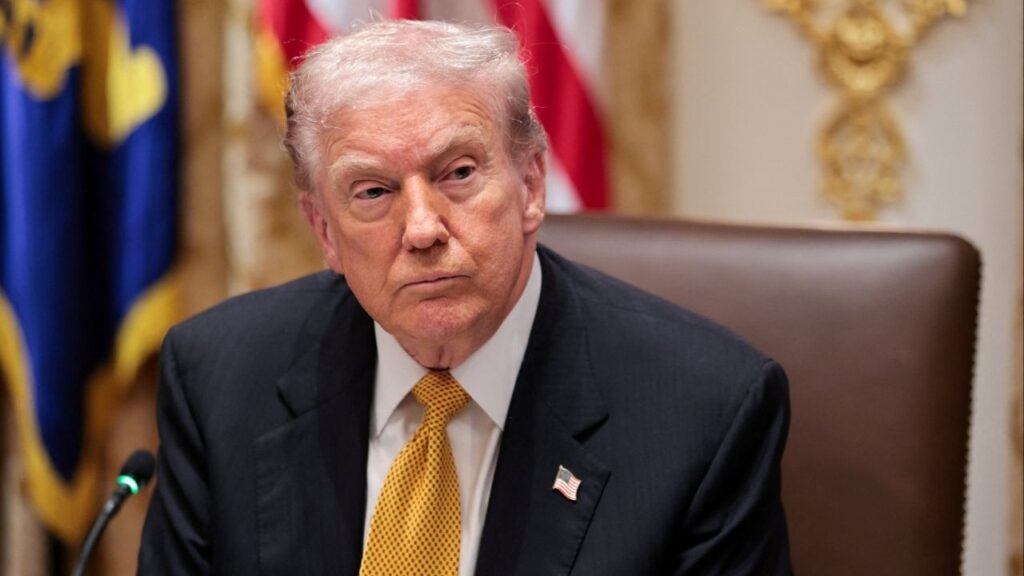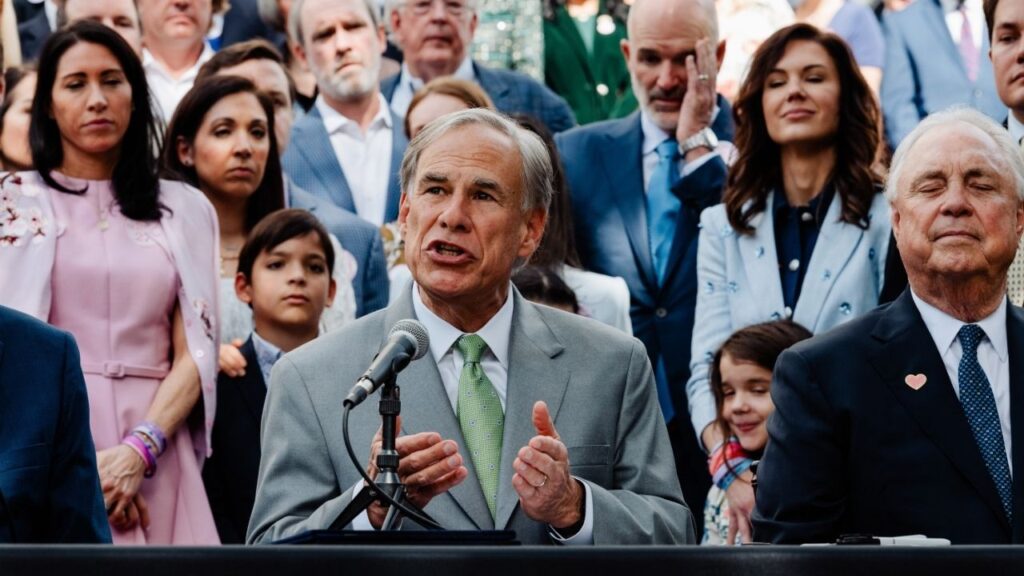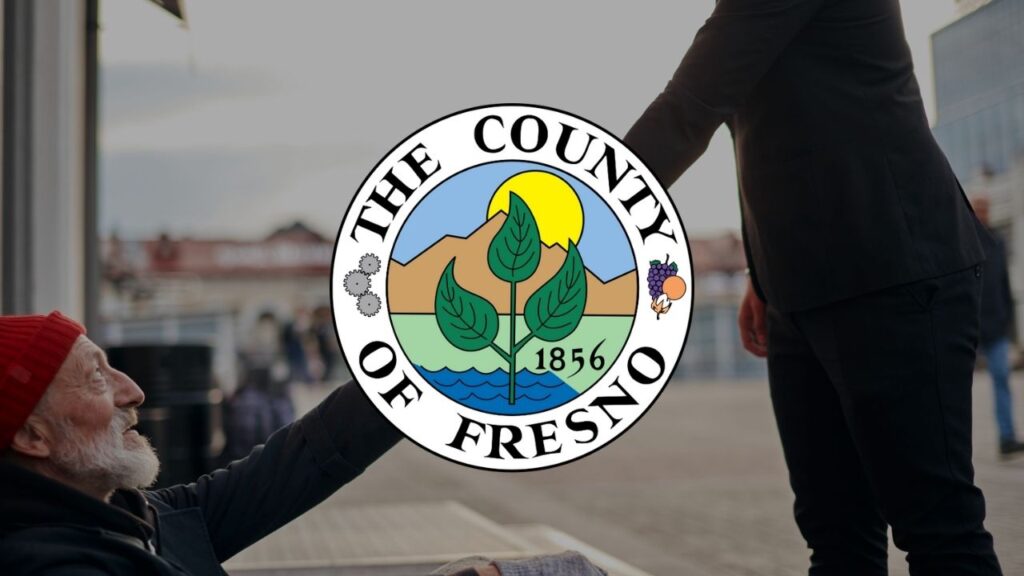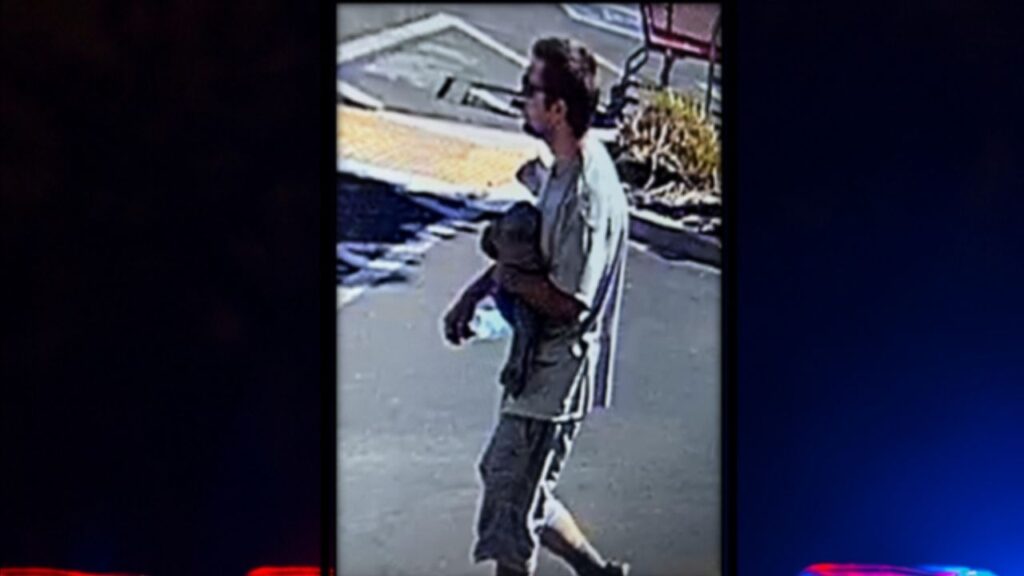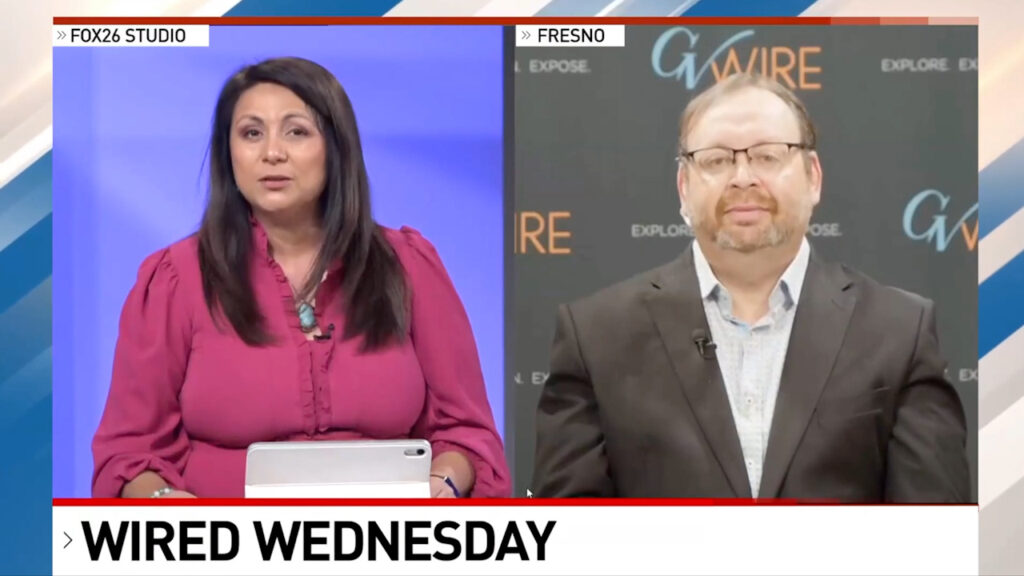Members of the California National Guard stand guard, as a demonstration against federal immigration sweeps takes place, outside the Edward R. Roybal federal building, after their deployment by U.S. President Donald Trump, in response to protests, in Los Angeles, California, U.S. June 8, 2025. REUTERS/Mike Blake

- Trump deployed troops to California, citing rebellion concerns; California sued, arguing the move violates state rights and federal law.
- Title 10 allows Guard deployment during rebellion; California says no rebellion exists and Trump bypassed governor, violating constitutional norms.
- Marines joined National Guard in L.A.; barred from arrests unless Insurrection Act invoked, which Trump hasn't yet done officially.
Share
|
Getting your Trinity Audio player ready...
|
President Donald Trump deployed National Guard troops to California after days of protests by hundreds of demonstrators against immigration raids, saying the protests interfered with federal law enforcement and framing them as a possible “form of rebellion” against the authority of the U.S. government. Defense Secretary Pete Hegseth on Monday mobilized 700 active duty Marines as part of the government’s response to the protests.
California sued the Trump administration on Monday to end the “unlawful” deployment of troops in Los Angeles County and return the state National Guard to California Governor Gavin Newsom’s command.
What Laws Did Trump Cite to Justify the Deployment?
Trump cited Title 10 of the U.S. Code, a federal law that outlines the role of the U.S. Armed Forces, in his June 7 order to call members of the California National Guard into federal service.
A provision of Title 10 – Section 12406 – allows the president to deploy National Guard units into federal service if the U.S. is invaded, there is a “rebellion or danger of rebellion” or the president is “unable with the regular forces to execute the laws of the United States.”
What Are National Guard Troops Allowed to Do Under the Law Cited in Trump’s Order?
An 1878 law, the Posse Comitatus Act, generally forbids the U.S. military, including the National Guard, from taking part in civilian law enforcement.
Section 12406 does not override that prohibition, but it allows troops to protect federal agents who are carrying out law enforcement activity and to protect federal property.
For example, National Guard troops cannot arrest protesters, but they could protect U.S. Immigration and Customs Enforcement who are carrying out arrests.
What Does California’s Lawsuit Say?
California’s lawsuit said the deployment of troops in the state without the governor’s consent violates federal law and the U.S. Constitution’s 10th Amendment, which protects states’ rights.
The state argues the deployment does not meet any of the requirements in Title 10 because there was no “rebellion,” no “invasion” and no situation that prevented the enforcement of U.S. laws in the state.
Trump also did not consult with Newsom before deploying the National Guard, violating Section 12406’s requirement that orders to deploy the National Guard “shall be issued through the governors of the States,” according to the lawsuit.
What Is the Lawsuit Asking For?
The lawsuit seeks a declaration from the court Trump’s order is unlawful and an injunction blocking it from being enforced.
How Might a Court View the Dispute?
There is little precedent for such a dispute. Section 12406 has only ever been invoked once before to deploy the National Guard, when President Richard Nixon called upon it to deliver the mail during the 1970 Postal Service Strike, according to Bonta.
Five legal experts from both left- and right-leaning advocacy organizations cast doubt on Trump’s use of Title 10 in response to the immigration protests and called it inflammatory and reckless, especially without Newsom’s support.
The protests in California do not rise to the level of “rebellion” and do not prevent the federal government from executing the laws of the United States, experts said.
Legal experts were split on whether a court would back Newsom’s interpretation of the governor’s role under Section 12406.
Courts have traditionally given great weight to the word “shall” in interpreting other laws, which supports Newsom’s position that governors must be involved in calling in the National Guard. But other experts said the law was written to reflect the norms of how National Guard troops are typically deployed, rather than giving a governor the option to not comply with a president’s decision to deploy troops.
What Other Laws Could Trump Invoke to Direct the National Guard or Other US Military Troops?
Trump could take a more far-reaching step by invoking the Insurrection Act of 1792, which would allow troops to directly participate in civilian law enforcement, for which there is little recent precedent.
Senior White House officials, including Vice President JD Vance and senior White House aide Stephen Miller, have used the term “insurrection” when discussing the protests, but the administration has stopped short of invoking the act thus far.
It has been used by past presidents to deploy troops within the U.S. in response to crises like the 1794 Whiskey Rebellion and the rise of the Ku Klux Klan in the immediate aftermath of the American Civil War. The law was last invoked by President George H.W. Bush in 1992, when the governor of California requested military aid to suppress unrest in Los Angeles following the trial of Los Angeles police officers who beat Black motorist Rodney King.
But the last time a president deployed the National Guard in a state without a request from that state’s governor was 1965, when President Lyndon Johnson sent troops to protect civil rights demonstrators in Montgomery, Alabama.
What About the Marines?
Trump has more direct authority over the Marines than the National Guard, under Title 10 and in his constitutional role as commander in chief of the armed forces, legal experts said.
But unless Trump invokes the Insurrection Act, the Marines are subject to legal restrictions that prevent them from taking part in “any search, seizure, arrest or other similar activity.” The Defense Department said on Monday that the Marines were ready to support the National Guard’s efforts to protect federal personnel and federal property in Los Angeles, emphasizing the relatively limited scope of their role at the moment.
—
(Reporting by Dietrich Knauth in New York and Tom Hals in Wilmington, Delaware, Editing by Alexia Garamfalvi, Amy Stevens, Aurora Ellis and Leslie Adler)
RELATED TOPICS:
Categories







